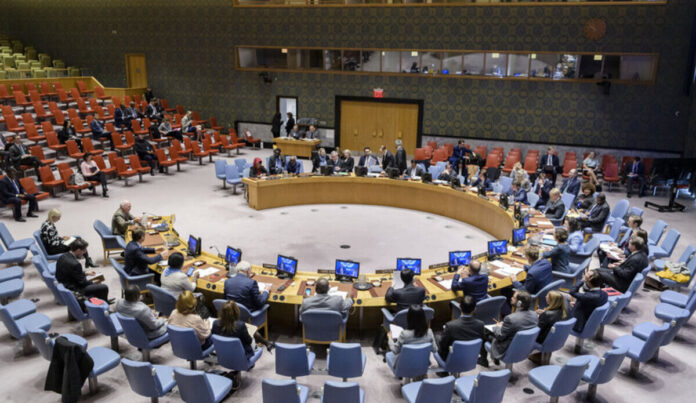New York (KAAB TV) – The United Nations Security Council is scheduled to hold a special meeting on Wednesday, April 31, 2025, to “discuss the situation in Somalia,” according to diplomatic sources and official documents. The closed-door meeting will focus on security and political developments in Somalia, along with international efforts to support stability in the Horn of Africa.
James Swan, the Special Envoy of the United Nations Secretary-General for Somalia and Head of the United Nations Office for Interim Assistance in Somalia (UNTMIS), is expected to present a comprehensive report to the Assembly. His address will likely cover Somalia’s progress in taking greater responsibility for national security, the ongoing fight against the Al-Shabaab insurgency, and the transfer of responsibility for UNTMIS to the Somali government and other relevant parties, with the mandate set to conclude by October 2026.
In addition to Swan’s report, representatives from the African Union (AU) will present an update on the African Union Support and Stabilization Mission in Somalia (AUSSOM). This mission, which officially replaced the African Union Transitional Mission in Somalia (ATMIS) on January 1, 2025, operates under the framework of Security Council Resolution No. 2767, adopted on December 27, 2024. The resolution, approved by 14 votes with one abstention from the United States, supports AUSSOM’s main efforts in Somalia, particularly in combatting Al-Shabaab and affiliated groups, while also facilitating the ongoing transfer of security duties to Somali forces.
Resolution 2767 emphasized the importance of coordination between the AU, the UN Secretariat, and international stakeholders. It indicated the Council’s intention to jointly discuss AUSSOM and UNTMIS, a commitment expected to be reflected in the upcoming meeting. The African Union update will likely cover the operational aspects of the mission, including the deployment of up to 12,626 uniformed personnel—comprising 11,586 soldiers and 1,040 police—authorized through June 30, 2025. The briefing is also expected to address challenges related to troop contributions and funding.
A key point of discussion is expected to be the funding of AUSSOM, which remains a contentious issue from the settlement negotiations. The resolution outlines an “integrated” funding model, scheduled to begin on July 1, 2025, combining contributions assessed by the United Nations with funds mobilized by the AU and other partners. However, the implementation of this model hinges on confirmation by the Security Council on May 15, 2025, that sufficient progress has been made in implementing the framework established by Resolution 2719 (2023). The African Union’s briefing may offer insights into preparations for this financial transition, particularly given ongoing concerns about donor fatigue and geopolitical tensions affecting military contributions.
Somalia’s security situation remains fragile, with Al-Shabaab continuing to pose a significant threat to the Somali military. The upcoming meeting is critical, as the Council assesses the effectiveness of international support while Somalia makes efforts toward democratization and constitutional reform. The special nature of the session highlights the sensitivity of topics, including the strategic review of the United Nations Support Office in Somalia (UNSOS) and the UNTMIS transition plan.
Diplomats expect the talks to also address regional developments, including recent tensions between Somalia and Ethiopia, which have strained AUSSOM’s mandate. The Council’s deliberations will be crucial in shaping the future of international engagement in Somalia, ensuring that a security vacuum is prevented and hard-won gains in terrorism and stability are sustained.
The outcomes of the April 31 meeting are expected to influence the decisions of the Security Council in May, particularly regarding the activation of the AUSSOM joint funding model.


